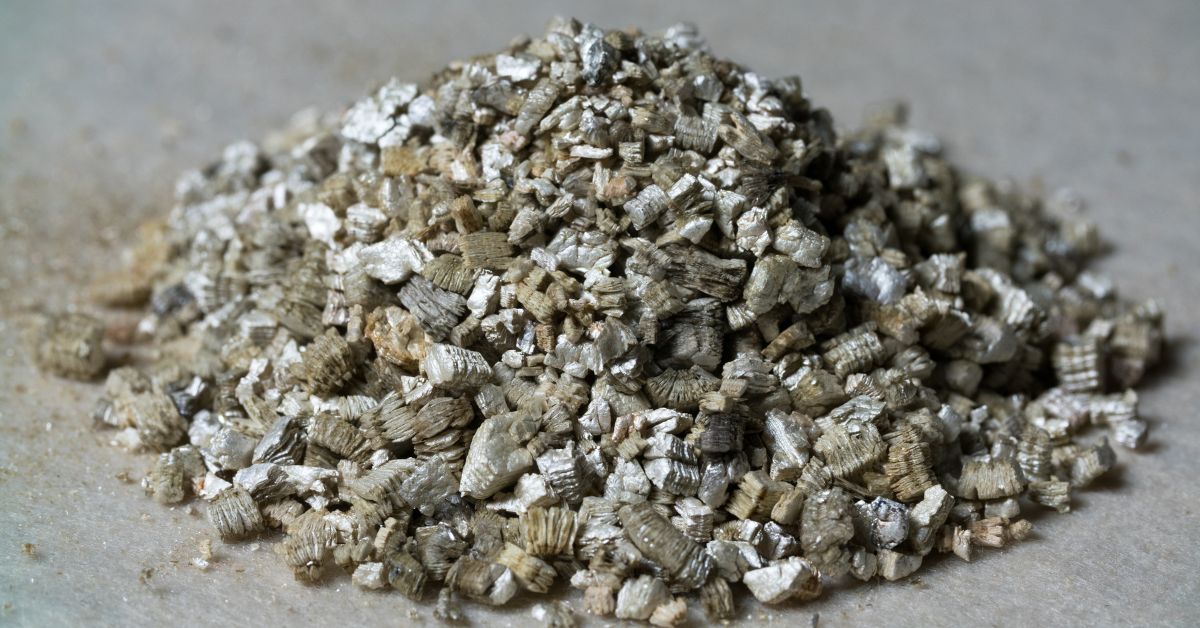Vermiculite is a natural mineral whose practical application is very broad. Heat causes it to swell to light and spongy flakes, which can absorb water, enhance airflow and insulate.
Due to these characteristics, it is significant in agriculture, horticulture, building, wrapping, and even some industries. This blog provides an overview of vermiculite, its primary forms, and its applications in various industries.
What is Vermiculite?
Vermiculite is a mineral of the phyllosilicate category and is able to transform its shape under high temperatures. This is referred to as exfoliation and produces a substance that is:
- Lightweight and airy
- Stable, sterile, and non-reactive
- Non-toxic with natural fire resistance
- Able to store both water and nutrients
These qualities allow vermiculite to be applied in both small-scale garden work and on a commercial scale.
Types of Vermiculite
The vermiculite is available in various grades, which have varied applications. The kind of grade that you choose determines its effectiveness in a given job. Here are the main categories:
1. Super-Fine Vermiculite
This grade has the smallest particle size, almost like powder. It maintains steady moisture levels, providing seeds with a safe environment in which to sprout.
Best For: Seed germination and plant propagation
2. Fine Vermiculite
The fine vermiculite is slightly larger than the super-fine grade. It maintains air pores and moisture. It prevents soil from getting compact while keeping enough water for plant roots.
Best for: Potting mixes and indoor containers
3. Medium Vermiculite
This is the most popular and versatile grade available. It is beneficial for sandy and clay soils, keeping nutrients intact and letting the air penetrate.
Best for: To improve soil in gardens and landscapes in general.
Key uses
- Lawns
- Horticultural beds
- Hydro-seeding blends.
4. Coarse Vermiculite
This grade contains big and coarse particles and is more industrial in nature. It is lightweight but strong, such that it is used as fireproofing, plaster, roof insulation and lightweight concrete.
Best for: Construction and heavy-duty use
Uses of Vermiculite
Agriculture and Horticulture
The absorption and retention of water and proper air circulation in the soil make Vermiculite keep the soil in balance. Common applications include:
- Starting seeds and young plants
- Mixing into potting soil
- Improving soil for better root growth
- Storing bulbs and tubers to prevent decay
Construction and Industrial Applications
Because it resists fire and is light in weight, vermiculite has a firm place in building materials. It is used in:
- Fireproof coatings and plasters
- Lightweight concrete products
- Thermal insulation for roofs and floors
- Spray-applied fireproofing on structural steel
Packaging and Transportation
Packaging is also done with expanded vermiculite. It insulates products, absorbs liquid spills, and provides safe transportation of delicate/treacherous products.
Animal Feed and Specialty Uses
Vermiculite is used as an anti-caking agent in animal feed, facilitating the transport of added nutrients to the animals. Additionally, it can also be found in brake linings, some coating materials, and paints.
Benefits of Vermiculite
What makes vermiculite stand out are its unique properties:
- Retains high amounts of water without flooding the soil
- Improves air movement around plant roots
- Naturally fire-resistant and insulating
- Long-lasting and stable without chemical changes
- Easy to handle due to its lightweight nature
Conclusion
Vermiculite is among such rare minerals that serve in agriculture as well as in the industry. It assists plants to become stronger, buildings safer and even safeguards goods in transport.
At Amol Minechem, we offer various grades of vermiculite to meet the needs of farmers, builders, and industries. Our products can be trusted with quality and a long lifetime practice, and we ensure that our customers make the most of this versatile material.
